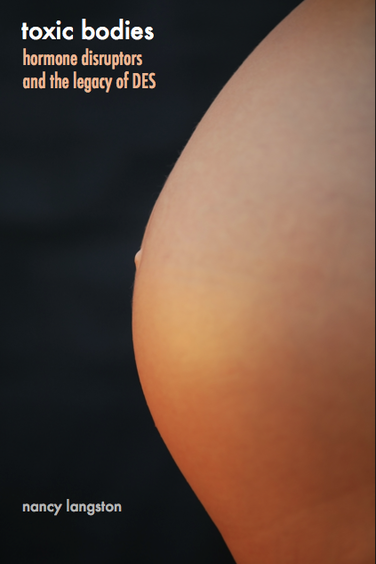Slow Seminar no. 29
We are discussing Toxic Bodies by Nancy Langston at this Slow seminar
Info about event
Time
Location
Ny Munkegade 114, building 1540, room K33 (basement).

Our next Slow Seminar will be on 22 February (Wednesday) from 16.15-19.00 at Department of Bioscience, Ny Munkegade 114, building 1540, room K33 (basement). We'll begin with a one-hour discussion here in Denmark, then follow that with a two-hour joint conversation over video connection with the UCSC group.
Our reading for this meeting is Nancy Langston’s Toxic Bodies.
You can read an e-version either free through www.library.au.dk https://www.statsbiblioteket.dk/au/?locale=da#/search?query=toxic%20bodies%20nancy%20langston&filter=lma_long:%2201%22&recordId=ebog_ssj0000860889
Or buy it as a kindle version through amazon: https://www.amazon.co.uk/Toxic-Bodies-Paper-Langston/dp/0300171374/ref=tmm_pap_swatch_0?_encoding=UTF8&qid=&sr=
Anna writes this about the book: "I picked the book because it tells one piece of the history of post-WWII technologies and infrastructures that have so challenged the livability of the planet. I want to know more of this history. It’s not the only period that has brought us environmental and health challenges, but it’s a key one, and its shallowness suggests to me that some of these things could still be reversed."
A description of the book:
In 1941 the Food and Drug Administration approved the use of diethylstilbestrol (DES), the first synthetic chemical to be marketed as an estrogen and one of the first to be identified as a hormone disruptor—a chemical that mimics hormones. Although researchers knew that DES caused cancer and disrupted sexual development, doctors prescribed it for millions of women, initially for menopause and then for miscarriage, while farmers gave cattle the hormone to promote rapid weight gain. Its residues, and those of other chemicals, in the American food supply are changing the internal ecosystems of human, livestock, and wildlife bodies in increasingly troubling ways.
In this gripping exploration, Nancy Langston shows how these chemicals have penetrated into every aspect of our bodies and ecosystems, yet the U.S. government has largely failed to regulate them and has skillfully manipulated scientific uncertainty to delay regulation. Personally affected by endocrine disruptors, Langston argues that the FDA needs to institute proper regulation of these commonly produced synthetic chemicals.
We look forward to seeing you there. Would you please RSVP to me if you are joining the seminar, so I can order enough sandwiches and coffee?
